Search
Remove Ads
Advertisement
Summary 
Loading AI-generated summary based on World History Encyclopedia articles ...
Search Results
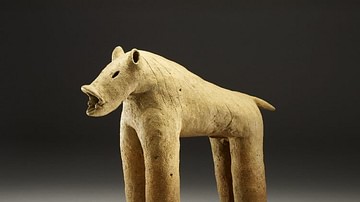
Definition
Kofun Period
Following the Yayoi Period of Japan when farming and metalworking techniques were introduced from mainland Asia was the Kofun Period (c. 250 CE - 538 CE) where the religion of Shinto emerges from the beliefs of previous eras and the Yamato...
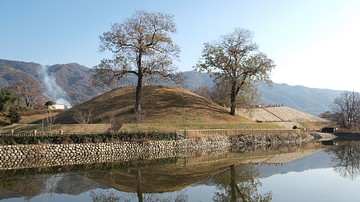
Definition
Kofun
Kofun (old tumuli) are large artificial mound tombs built in ancient Japan for the ruling elite between the 3rd and 7th century CE. Many measure several hundred metres across, are surrounded by a moat, and, besides containing valuable bronze...
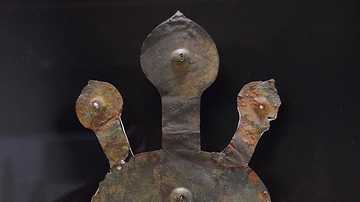
Image
Kofun Period, Gilt Bronze Crown
A gilt bronze crown. Nihon Matsuyama tumulus, Eiheiji-cho, Yoshida-gun, Fukui, Japan. Kofun Period, 5th century CE. (Tokyo National Museum)
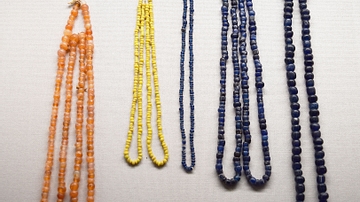
Image
Japanese Beads from the Kofun Period
These beads come from Japan and date from the Kofun period (250-538 CE) in Japanese history. In the Kofun Period beads of various shapes and materials were worn as fashion accessories, used in rituals, and buried in tombs. They include, for...
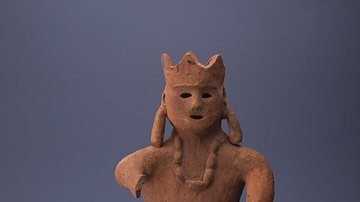
Image
Haniwa, Kofun Period
Terracotta Haniwa figure from Kofun Period Japan.
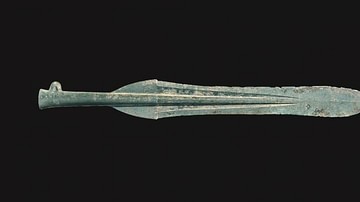
Definition
Yayoi Period
The Yayoi Period is one of the oldest historical periods of Japan spanning from c. 300 BCE to c. 250 CE, preceded by the Jomon Period and followed by the Kofun Period. The name Yayoi comes from the district in Tokyo where the first artifacts...
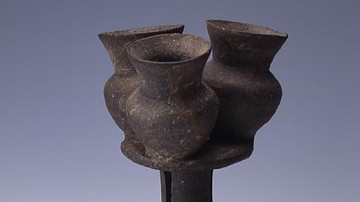
Image
Sueki Stoneware from the Kofun Period
Three jars on pedestal platform, made of high-fired stoneware with natural ash glaze, from early 6th century Kofun Period Japan.
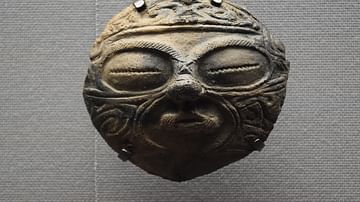
Definition
Jomon Period
The Jomon Period is the earliest historical era of Japanese history which began around 14500 BCE, coinciding with the Neolithic Period in Europe and Asia, and ended around 300 BCE when the Yayoi Period began. The name Jomon, meaning 'cord...

Video
The Japanese Kofun Period
This video briefly describes the historical developments of the Japanese Kofun Period.

Definition
Asuka Period
The Asuka Period (Asuka Jidai) of ancient Japan covers the period from 538 CE to 710 CE and, following on from the Kofun Period (c. 250-538 CE), so constitutes the latter part of the Yamato Period (c. 250-710 CE). For some scholars the period...